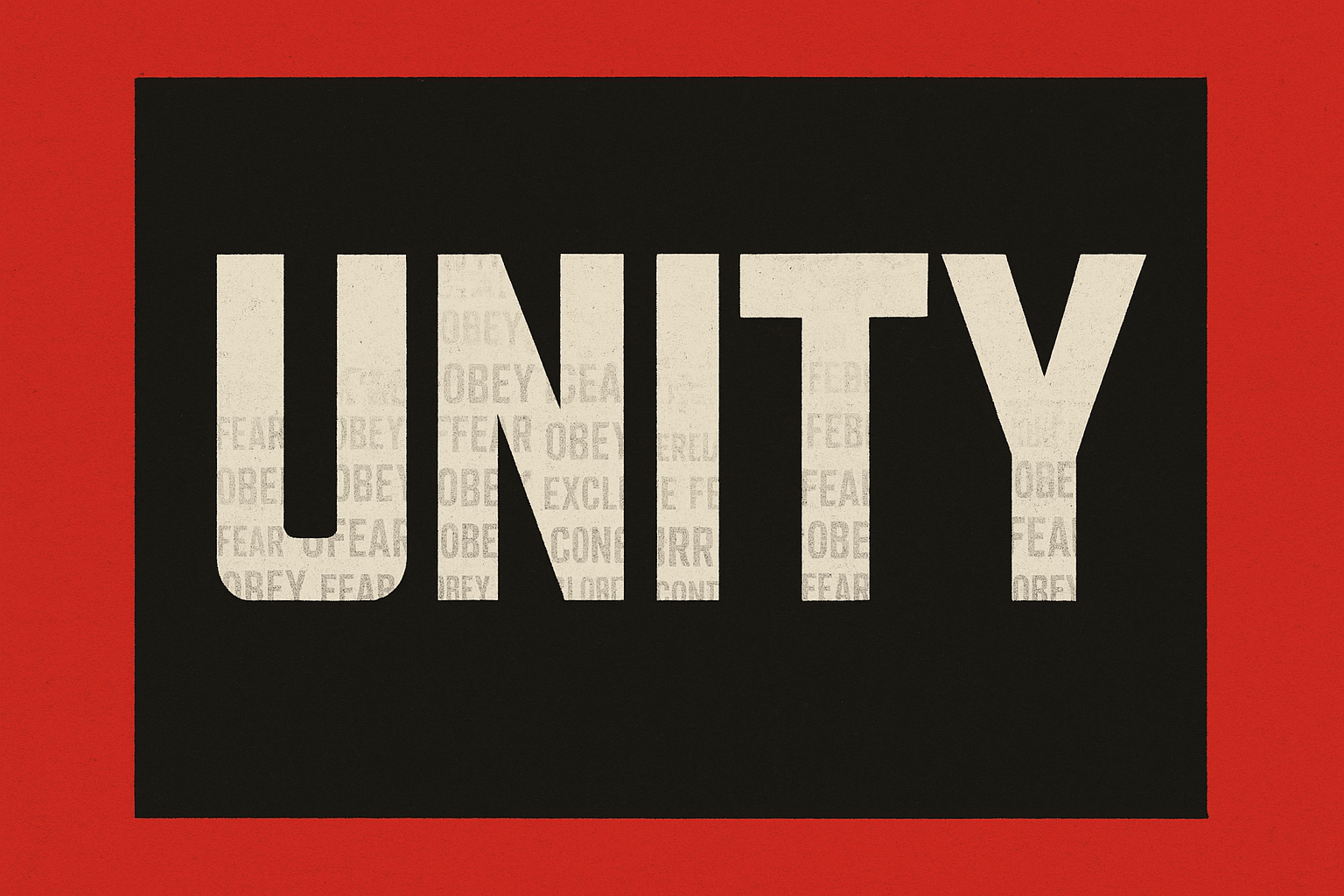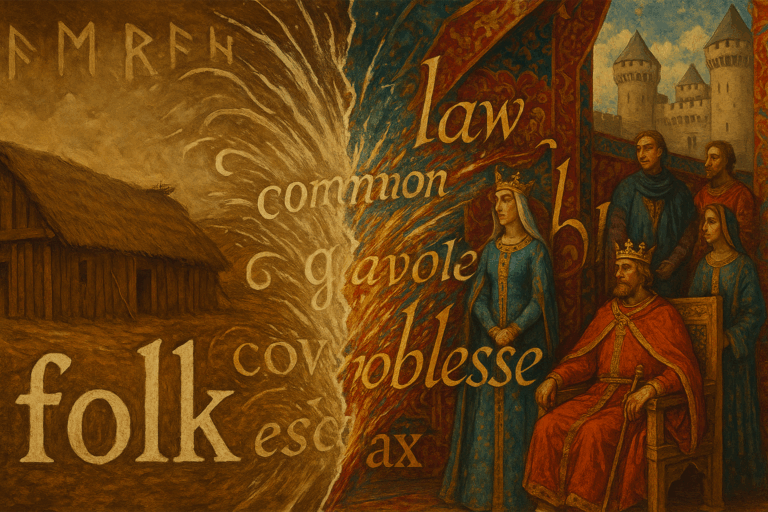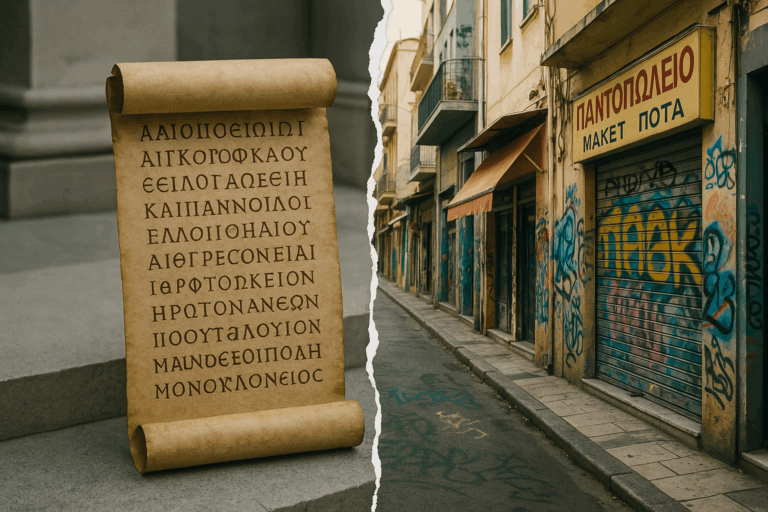Long before “fake news” became a household term, propagandists were master linguists, whether they knew it or not. They understood that language isn’t just a tool for describing reality—it’s a tool for creating it. By carefully choosing their words, sentence structures, and rhetorical devices, they could construct a narrative so compelling that it felt more real than reality itself. Let’s dissect the grammar of propaganda.
Erasing the Actor: The Power of the Passive Voice
One of the most insidious tools in the propagandist’s kit is the passive voice. In active voice, the subject performs the action: “The soldier shot the civilian.” It’s clear, direct, and assigns responsibility. The passive voice flips this: “The civilian was shot.”
Notice what happens? The actor—the soldier—can be omitted entirely. The sentence is still grammatically correct, but the agent of the violence has vanished. This linguistic sleight-of-hand is a cornerstone of bureaucratic and military doublespeak. Consider these phrases:
- “Mistakes were made.” (By whom?)
- “Bombs were dropped and civilian casualties were incurred.” (Who dropped them? Who incurred them?)
- “The village was pacified.” (Who did the “pacifying,” and what does that horrific euphemism actually mean?)
Authoritarian regimes use this to present state violence as a passive, almost natural event. In official Nazi documents, the language used to describe the persecution of Jews was chillingly bureaucratic and passive. Phrases like “the Jewish question was dealt with” or “measures were taken” obscure the brutal reality of individuals making decisions to systematically murder millions of people. The violence becomes an impersonal, administrative procedure, scrubbed clean of moral responsibility.
Us vs. Them: Forging Identity with Loaded Language
Tyranny cannot exist without an “other”—a scapegoat to blame for society’s ills and a target for its fears. Propaganda creates this division through the careful selection of loaded words, which are words packed with emotional connotation beyond their literal meaning.
The “in-group” is described with words that evoke purity, strength, and virtue:
- The People
- Patriots
- Loyal Citizens
- Freedom Fighters
- The Homeland
Conversely, the “out-group” is systematically dehumanized with language that strips them of their individuality and humanity, often comparing them to vermin, diseases, or inanimate objects. This makes violence against them seem not only acceptable but necessary—a form of purification.
History provides terrifying examples. The Nazis referred to Jews as Untermenschen (sub-humans), rats, and parasites. During the Rwandan genocide, Hutu extremists used the radio to call Tutsis inyenzi (cockroaches), urging listeners to “crush” them. This is not just name-calling; it’s a linguistic strategy to reclassify human beings as something less than human, making their extermination seem like pest control.
The Grammar of False Certainty
Propaganda thrives on shutting down debate and critical thought. It achieves this by presenting its claims as absolute, inevitable truths. Two grammatical tools are key here: nominalization and the aggressive use of modal verbs.
Nominalization is the process of turning a verb (an action) or an adjective (a description) into a noun (a thing). For example, “we need to secure the nation” becomes “national security is the priority.” The fluid, debatable process of “securing” is transformed into a solid, unquestionable concept: “security.”
Authoritarian language is full of these heavy, abstract nouns: The Struggle, The Solution, The Purification. The most infamous example is the Nazi’s die Endlösung—”The Final Solution.” It re-packages the horrific, ongoing act of mass murder into a single, neat, and final “solution,” as if it were the answer to a math problem.
This is often paired with forceful modal verbs like “must,” “will,” and “shall.” These words brook no argument. “We must defend our heritage.” “The enemy will be defeated.” “This policy shall be enacted.” This language doesn’t invite discussion; it issues a command and presents a future that is already decided.
Whitewashing Atrocity: The Euphemism Treadmill
When the reality of an action is too grotesque for the public to stomach, propaganda resorts to euphemism. A euphemism is a mild or pleasant-sounding word used to replace a harsh or offensive one. In the hands of a state, it is a tool for whitewashing atrocity.
We’ve seen it throughout modern history:
- Torture becomes “enhanced interrogation techniques.”
- Civilian deaths become “collateral damage.”
- Genocidal campaigns become “ethnic cleansing.”
- Forcing people from their homes into concentration camps becomes “relocation” or “resettlement.”
George Orwell, in his famous essay “Politics and the English Language,” railed against this kind of “verbal false limb,” which is used to “make lies sound truthful and murder respectable, and to give an appearance of solidity to pure wind.” The goal is to anesthetize the audience, to detach the word from its violent reality so that horrific acts can be discussed with the clinical coolness of a quarterly report.
Your Defense is a Critical Ear
Language is the battlefield on which the war for public opinion is fought. Tyranny doesn’t spring from the ground fully formed; it is built, brick by brick, with carefully chosen words and manipulated grammar. It starts when “civilians were killed” replaces “our soldiers killed civilians,” when a group of people are labeled “vermin” instead of citizens, and when mass murder is called a “solution.”
Understanding the grammar of propaganda is a form of self-defense. It empowers us to look past the surface of a statement and analyze its architecture. We must learn to ask: Who is the actor? What emotions are these words designed to evoke? Are we being presented with a process or a concrete, unchangeable “thing”?
By learning to parse not just what is being said, but how it’s being said, we can better identify manipulation in action. A critical ear and a conscious mind are the most powerful weapons we have against the linguistic scaffolding of tyranny.








